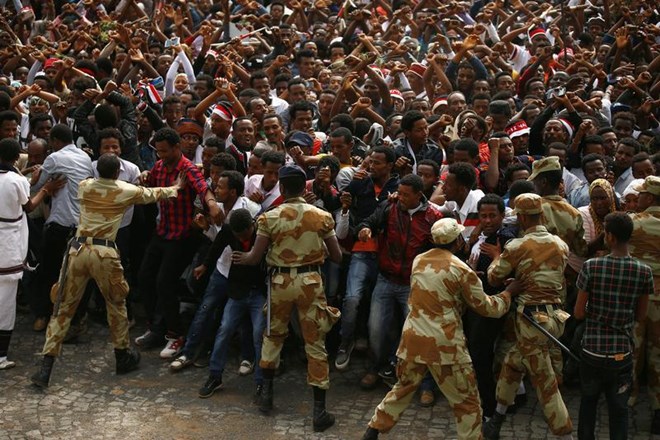Ethiopia Frees Thousands of Detainees

It’s good news that Ethiopia’s government has announced the release of 9,800 people detained for their participation in anti-government protests. But they represent fewer than half of the 24,000 people detained since a countrywide state of emergency began on October 9. And most never should have been arrested. The state of emergency has had catastrophic rights implications for Ethiopians, and the factors that prompted it remain unresolved.
Since November 2015, security forces have arrested and detained tens of thousands of people, often without charge, during protests against government policies in Oromia. Hundreds of protesters have been killed. We have interviewed dozens of people held in short-term detention in military camps, and many described mistreatment and torture in meticulous detail.
The scale of the arrests is overwhelming. Many lives have been lost or forever altered. “Iftu,” a 16-year-old girl from Hararghe in Oromia, described the toll on her family – security forces shot and killed her father during an August protest. Several days after his funeral, two of her brothers were arrested and taken to Tolay military camp, and have not been seen since.
Her mother and two other brothers went missing when the military went door to door in November “arresting every young person they could find,” she said. Her uncle cannot walk because of torture he suffered in Ziway prison following protests in Oromia in 2014. Iftu’s school administrator suspended her for one year after the military found a “protest song” on her phone. Her family and her future have been torn apart because she, her fellow students, and her father took to the streets to protest against government policies.
Iftu hopes some of her family will be released soon, but she told me she would not go back to Hararghe until the killings and mass arrests stop and protesters’ grievances are addressed. Many other young people have told me the same thing.
The government has made vague promises of reform and increased consultation with the concerned public. But mass arrests continue, fueling anger. The detention of key opposition leaders, such as Dr. Merera Gudina and Bekele Gerba, as well as the clampdown on basic rights limits the potential for open dialogue that is needed to understand and address protesters’ grievances. The government needs to show that it intends to tackle these complaints. Ending state of emergency restrictions would be an important step forward.
HRW